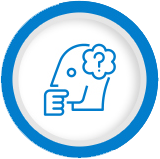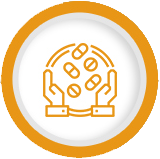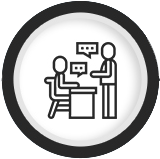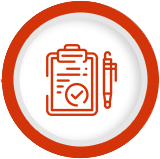Sleeping Tablets & Mental Health
There are over 80 different sleep disorder, ranging from insomnia (difficulty falling asleep), Sleep apnea (breathing disorder when sleeping), narcolepsy (extreme and sudden sleepiness) and lots more.
Most of these sleep problems are usually associated with bipolar disorder, anxiety, depression and panic disorder, ADHD, substance abuse and other forms of mental health disorder.
What Are Sleeping Tablets?
Sleeping tablets are prescribed by psychiatrists to people with sleep disorder. There are various types of sleeping drugs such as Flurazepam and Diazepam. Each of these tablets has varying strength. They mostly come as pills/tablets in diverse colour and sometimes in liquid form or injections.
Sleeping tablets are used to reduce the effects of substances such as crystal meth, cocaine and mephedrone. They are also used to manage anxiety, stress and paranoia. These tablets can help you fall asleep easily, stay asleep longer, or stay awake. Depending on the type of disorder you are suffering from.
The side effects of these drugs depend on the individual, the type of disorder and the form of the drug used (short lasting or long lasting). Side effect ranges from mild to severe reaction. Some of the side effects include drowsiness, erratic behaviour and memory loss amidst other things. Long term use of sleeping tablet can lead to addictions and cause other types of conditions. Excessive use could also cause rebound effect when discontinued.


How Important Is Sleep for the Mental Health?
Mental health is the behavioural, emotional and cognitive condition of an individual. Every year, millions of people are been treated for mental health disorder. Some common types of mental disorder are depression, anxiety disorders, bipolar and schizophrenia. Symptoms may include changes in mood, social withdrawal or sleep deprivation.
There are varying causes of mental disorder such as substance abuse, sleep disorder and others. Behavioural scientists have discovered that sleep disruption affects neurotransmitters and stress hormones which inflicts damage in the brain. It impairs thinking and emotional regulation. Most times, sleep deprivation is linked with depressive and manic episodes
Most often than not, sleep disorder is a symptom or cause of a psychiatric disorder. Sleep disorder and mental health have a bi-directional relationship. This means that the presence of one condition, can cause or worsen the other and vice versa. For this reason, psychoanalysts often ask about sleep behaviours when diagnosing mental health.
Many scientists have concluded that both conditions have the same underlying cause. People suffering from sleep disorder such as insomnia have a high risk of developing psychiatric disorders. Also, depression, bipolar disorder, anxiety and other mental health issues can increase the possibility of developing insomnia.
- none Easy
- none Confidential
- none Lifetime Support
Medically Treated Sleep Disorders
There different ways to treat sleep problems. The treatment depends on the underlying cause, medical history and the type of disorder. Some sleeping disorder have no cure, but have symptomatic treatment. These treatments ranges from medications, therapy and lifestyle changes.
Medical treatment for sleep disturbances include:
- Sleeping pills: Sleeping tablet is one of the most common medical treatment for sleeping disorder. They are usually prescribed by a psychiatrist. Diazepam is a common pill used to treat this condition. It is a benzodiazepine receptor agonist (BzRAs) that induces sedation and calming effects.
- Melatonin supplements: Melatonin is a hormone in the body that produces sleep. Melatonin as a supplement is produced in the lab. It is used to treat chronic insomnia and jet lag, ADHD, delayed sleep phase syndrome (DSPS) and other types of disorders.
- Melatonin supplements: This is usually for people suffering from sleep apnea. This involves the application of a device into the chest. This device monitors breathing and can be turned activated by the patient.
- Mouth guard: This is usually worn for people suffering from sleep apnea and teeth grinding. It involves the application of a mouthpiece by a dentist.


Benefits and Risks for the Mental Health
Many people suffer from mental health. While some people have remained hidden because of the fear of being stigmatized others have opened up and are seeking for help.
In the UK,the Equal Act 2010 protects people suffering from mental illness. However, this protection is beneficial to those who can prove that their disorder is a disability. The acts protect patients from being discriminated when applying for a job, joining a private club, attending public functions. It also protects them from discrimination during the other social activities.
Sleeping Pills & Anxiety
Anxiety is an expected occurrence in every individual’s life. Sometimes you feel anxious when faced with certain challenges. However, anxiety disorder is different from temporary worry or fear. Anxiety disorder does not go away after a problem is solved. Rather, it can affect daily activities and cause sleep deprivation.
Sleep disorder occurs in 50% of people with panic disorder, post-traumatic stress disorder, phobias, obsessive-compulsive disorder and other generalized anxiety disorder. Because people suffering from this disorder worry constantly and unable to relax, they find it difficult to fall and stay asleep.
There are different treatment method for this disorder of which medication is one of the most common treatment types. Benzodiazepines are a popular anti-anxiety medication. It is given to patients for its sedative effect. This drug helps the central nervous system focus on the gamma-aminobutyric acid (GABA) receptors in the brain. It reduces panic attack and induces a sense of relaxation and ultimately sleep.
Examples of Benzodiazepines are:
- alprazolam
- Flurazepam
- clonazepam
- diazepam
- lorazepam
Benzodiazepines drugs are very strong and should be used for short-term treatment. Long term use or overdose could be lethal. They are not without side effects. Side effects include confusion, slurred speech, and poor coordination amongst other things.

Addiction is a devastating illness which can put all your relationships and your career in chaos. To help you recover and enjoy life again, we strive to heal both you and your relationships. Call us now to begin the road to recovery today!
Get Help Immediatley, Call Now!

Sleeping Pills & Insomnia
Insomnia is a common type of sleeping disorder. 37% of adults in the UK find it difficult to fall asleep. If you are part of this statistics, it is best to book an appointment with your doctor. There are a different treatment for insomnia. Treatment includes sleeping pills, therapy and lifestyle changes.
Sleeping pills are sometimes used to help patients fall and stay asleep for a long time. Examples of sleeping pills used for insomnia are Estazolam, Eszopiclone and Suvorexant. They have numerous side effects, which include heartburn, memory impairment, prolonged drowsiness, gastrointestinal problems, loss of appetite, headaches, shaking, and changes in menstrual cycle and testosterone.
Another danger of taking sleeping pills is that your body develops a tolerance for it. This means you have to use more to get the right effect which can lead to addiction and overdose. Also, people who discontinue (this should be done with the help of a medical practitioner) the medication tend to have a rebound effect.
Sleeping Pills & ADHD
More often than not, individuals who suffer from ADHD experiences:
- Extreme sleepiness during the daytime
- Disordered breathing.
- Difficulty falling asleep at night
- Difficulty waking up in the morning
- Sleep apnea, insomnia and other types of sleep disorder
ADHD symptoms are usually treated with medications. Unfortunately, many of those medications could also cause sleep disorder like insomnia. Using sleep medication are often connected to combined-type ADHD.

Stimulants such as Ritalin (methylphenidate) are used to treat ADHD sleep-related disorder like narcolepsy and chronic fatigue syndrome. Melatonin and Clonidine are also used for patients who are unable to use stimulants or antidepressants.
Of course, these drugs are not without side effects. Side effect varies depending on the patient and the type of medication (short-acting and long-lasting). Side effect includes Drowsiness, reduced appetite, vertigo, dry mouth, weight loss, irritability and low blood pressure.

Sleeping Pills Addiction & Self-Medicating
Each year, over 15 million prescriptions are written for sleeping pills In the UK. Sleeping pills addiction is similar to any other type of substance addiction. Sleeping pills are classified as sedative hypnotic’s drugs. They are specific drugs that are used to control the part of the brain that affects the ability to relax. Long term use of sleeping pills can lead to addiction. And as such, patients are advised to use pills for a short period of time.
However, most people tend to abuse sleeping pills and self-medicate. Most times, people tend to increase their dose without the guidance of a medical expert. This is dangerous and can lead to coma, death and increase your body’s tolerance to the drug.
If taken in small doses, the side effects of sleeping pills could be mild. This makes it hard for most users to control their intake. When pills are abused, the chemical in the brain alters. Dependency modifies the function of the brain and causes chemical imbalance.
There are numerous dangers (short term and long term effect) associated with overdosing on sleeping pills. The symptoms of sleeping pills abuse is similar to alcohol abuse. Users experience seizures, depressed breathing, chest pain, swelling, nausea and rebound insomnia.
There are dangerous withdrawal symptoms associated with the abuse of sleeping pills. Some of the most common types of sleeping pills withdrawal are Ambien withdrawal, Lunesta withdrawal and benzodiazepine withdrawal. The withdrawal symptom includes:
- Convulsions
- Vomiting
- Increased heart rate
- Sweating
- Tremors
- Panic attacks
The withdrawal process varies. It depends on the individual and the level of dependency. Generally, withdrawal symptoms starts manifesting 24 – 72 hours after the last intake. Symptoms heightens within 2- 5 days. Symptoms stats fading within 5-14 days. After 2 weeks symptoms should have completely faded off. However, some users suffer from post-acute withdrawal syndrome (PAWS). This may last months or years.
On completing treatment we offer lifetime support for your recovery.
Strict client confidentiality policy is in place.
Simply give us a call and we will guide you through the process.
FAQ
Can I take them during breastfeeding?
Self-medication is not safe for any individual, let alone women who are breastfeeding. Although many experts say Lunesta and Ambien are considered safe, it is best to consult a medical expert before taking any drug while breastfeeding. Also, you need to consider the safety of your infant before inducing deep sleep. There should be another caregiver around.
Can I mix sleeping pills with other medications for mental disorders?
Sleeping disorder and mental disorder have a complex relationship. If you have mental disorder there is a high tendency that you have troubles sleeping. Some mental disorder drugs work like sleeping pills. Most times there is no side effect when you combine drugs for both conditions. Instead, there have agonist effect (a better result). However, there are some drugs that should not be combined. Always ask your doctor before starting a new medication.
What are the effects of sleeping pills on people with low blood pressure?
One of the side effects of sleeping pills is low blood pressure. Although the effect is mild it is advisable to check with your doctor if you suffer from hypotension. The reduction in blood pressure might not be significant, but an overdose could be dangerous.
Can I start sleepwalking if I use sleeping pills such as Zopiclone?
Medications affect people differently. Some people have reported doing things like sleepwalking and making food and phone calls while sleeping. Also, ensure you take the drugs during the daytime or when you are less active.
Can I drive or ride a bike if I’m on sleeping medications?
Do not take sleeping medication if you do not have someone to drive you around. When you are on sleeping medication patients are advised not to drive. Sleeping medications have a lingering effect. If you are going to drive the next day, use short-acting medications.
It is important for people experiencing problem with sleep to visit the doctor for proper diagnostic. Because both conditions are linked, it is possible to misdiagnose if you are self-medicating. Understanding the relationship between sleep disorder and mental health disorders can help to enhance treatments for both conditions.





